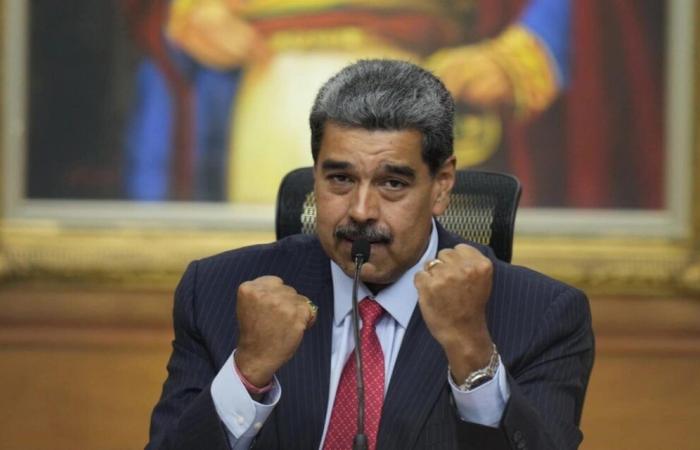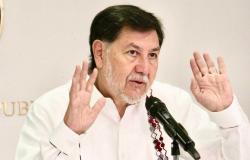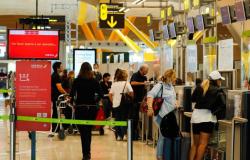A lament that crosses Venezuelan culture is that of the “country without memory” that precipitates the same abysses over and over again, a voluntary victim of a chronic presentism. Rarely as it has now been more difficult to deny that this old topic is right. Before social networks crumble what we had left of Ágora, in Venezuela we already despised arbitration or consensus offered by the means of reference, the academy and the parties. Result: it is hard for us to understand what has happened to us – what they have done to us, what we have done, what happens to us today – and it is impossible for us to agree. Shouting between the ruins of our democracy and the petroesty that financed it, we fought to be right invoking false memories, prefabricated embustches, chosen by golden ages that never occurred, affronts by grievances that never infringed themselves.
This dispute over who was to blame for the disaster, this bitter family crisis without resolution, takes place in a massive loss of collective memory. A deliberate extinction of the footprints of what Venezuela was, or what it tried to be, at the hands of a political regime that for a quarter of a century did not settle for seizing the present or breaking the legs to the future: he also had to rewrite the past to justify his existence and to convince us all that he arrived to never leave.
Six years before Oxford Dictionios designated the POSTRADY As the 2016 word, Hugo Chávez made the remains of Simón Bolívar live to insist that, contrary to what historiography said for almost two centuries, the hero did not die of tuberculosis but poisoned by the oligarchy. And since 2013 Nicolás Maduro attributes to an economic war of imperialism the destruction of industries and the infrastructure that citizens have seen being helpless or burned with their own eyes.
As in Marxist determinism or the millennial delusions of the Nazis, the Chavista propaganda ties everything in a struggle of good (they) against evil (all others) that began when the indigenous arcadia was raped by the conquerors. Who question the official myths is a traitor to the country and a terrorist, and the dictatorship says increasingly absurd things as a language of power: we are so powerful that we can issue laws from premises that an eight -year -old boy would not believe.
It is more than simple populist anti -intellectualism: in Venezuela the truth lacks meaning, knowledge is subject to suspicion, and public transparency is prohibited in practice. We can barely remember our recent history, because we can barely perceive it. Knowing something with certainty in Venezuela is almost impossible for the lack of data. The State omits statistics or lies. Harassment to universities, NGOs and think tanks He has demolished his research capacity. The media ecosystem, publishers and bookstores was devastated by technological change, censorship and falling consumption, and with it, its publishing funds and its archives. Public libraries have been burned, devalued and flooded while emigration and death leave orphaned to private ones.
However, under that dark equation of noise and silence, it is written to resurrect that memory that faints of starvation, as someone who, given the symptoms of an irreversible dementia, notes everything to not forget.
In the corpus that explains the mutation of Venezuela of South American promise to failure of world fame, which most abounds are not the typical books of former ministers and former presidents who want to convince us that everything went wrong because we did not pay attention to them; Venezuelan politicians, except few exceptions, have never believed much in the book. That work has been done, above all, in the academy and the street, inside and outside the territory. There are dozens of collective volumes, financed by organizations and universities, which tell how institutions, employment or security, and how to rebuild the Republic. They contain all the data that has been possible to collect, and will be seeds for reconstruction to the extent that they subsist in bookstores and libraries. But in addition, there is a leafy literature about these dimensions of change that cannot be measured.
Three books, among hundreds that have been published with different fortune, illustrate the complexity of the intellectual and emotional effort to register, order and preserve that common memory.
In Ruinas Diario, 1998-2017Ana Teresa Torres reviews the omens that were certain and the behaviors of those who refused to see or resist destruction, in a log that vibrates with a bitter question from which some cannot give off: could it have avoided? That title of this first -level narrator and essayist is a gesture of responsibility of the intellectual who, as several academics did, feels that it cannot remain silent.
Another form of direct observation of the present, with narrative ambition and attachment to the facts, encouraged the outbreak of a genre that had never been so productive in Venezuela: the chronicle. In The Aragua Train: the band that revolutionized the crime in Latin AmericaRonna Rísquez not only brings together everything that is known, and what she herself found out in the mouth of the wolf, on the criminal organization that grew under the protection of the State and ended up extending through the hemisphere, behind the columns of migrants, but left a book that serves both to deny the Chavist Trumpist speech that implements his xenophobic populism by turning all Venezuelan into a suspect.
It also grows the chronicle that recalls the democratic twilight and documented exile, and migration novels, new in the literature of what was a host country. In the celebrated Back the earth isArianna de Sousa García puts on all the contributions of this bibliography: incorporates data, real news, thought and narrative to transmit, to the son that grows elsewhere, the memory of the country from which it comes.
In spite of everything, it continues to write and publish more. In libraries, editorials, media and universities still active in Venezuela there are people transmitting what they have lived and asking questions about the future. In the still weak networks of emigration, it is about spreading online what no longer comes out of printing presses.
We will always have studs, lagoons, legends. Our past was mutilated by authoritarianism, cultural transition and mere negligence. Something, however, we can recompose. Amnesia is not, it will not be, total.






